- Home
- Darrell Maloney
The Final Chapter Page 6
The Final Chapter Read online
Page 6
They went out with full packs containing their excess produce.
They came back with things they traded them for.
They were not only surviving, they were thriving.
-17-
Baker Street’s operation wasn’t unique. In most ways it mirrored similar operations all over the city.
In other ways, though, it offered things few other blocks had.
Tony’s cousin Jesse was an automobile restorer and mechanic before the world went black.
Richard was a welder by trade who built custom motorcycles in his spare time.
The two of them teamed up and started building go-carts, and their wares were now all over the city helping people get around.
They were fairly easy to build, for men who were used to fabricating things from metal.
Using Bill as a helper and teaching him as they went, they were able to put out three or four carts per week.
Enough for the barterers to put away their bicycles and ride the carts to the farmer’s markets on the weekends.
On any given morning Jesse and Richard set out on two of their carts specially made with cargo beds behind the rear wheels.
They were in search of lawnmower engines, which survived the EMPs because they were started with a pull cord.
They also hunted through junk yards and industrial plants for metal tubing they could use to fashion the frames, and other parts for the suspension and steering.
Down the street from their shop on Baker Street a neighbor named Robert, who owned a bicycle repair shop in the pre-apocalyptic world, repaired broken bikes and fashioned new ones for barter.
Next door to him was Kyle Lovett, who ran one of the few blacksmith shops in the city.
It was said that Kyle could shoe a horse in three minutes flat if he wanted to, but he typically took the time needed to do it right.
Kyle was one of the oldest Baker Street residents, now in his early seventies, but was teaching the trade to his twin sons.
Kyle’s talents in the almost forgotten trade wouldn’t pass away when he did.
Possibly the most unusual and perhaps the most charming thing the residents of Baker Street did was to create what they called their “oasis.”
It was a patch of rich green grass which covered the street for about fifty yards.
That’s right.
Grass growing in the street, from curb to curb.
John laughed when he saw it.
But once Tony explained the logic it made sense.
“We dug up all the yards to grow food,” he said.
“Then we took a step back and realized we didn’t have any place to relax.
“We couldn’t barbeque in our back yards anymore because our back yards were full of corn or wheat or squash.
“The street, on the other hand, was worthless.
“We couldn’t take the pavement up, and we couldn’t plant any food in it.
“The solution was to put two inches of soil on top of the pavement and grow grass on it.”
John walked across the plush lawn. It was soft, it was green, and it reminded him of his own lawn before the blackout.
Back then he took great pride in his lawn and was working on it almost every weekend in the warm weather months.
He missed those days.
Maybe Tony and Rhett and the others were onto something.
Maybe the reason they got along so well and accomplished so much was because they paid attention to the little things.
He surveyed the entire patch of grass.
Here and there were patio tables with padded chairs and umbrellas.
Running parallel to one curb was a horseshoe pit, complete with sand-filled dugouts.
“How’d you get the spikes into the pavement?” John asked.
Tony replied, “It wasn’t easy. Two hundred or so whacks with a sixteen pound sledge hammer.
“I thought my arms were gonna fall off.”
“Same thing for the volleyball net?”
“Good guess.”
On one side of the volleyball court were six top-of-the-line barbeque grills, lined up in a nice neat row.
Four of them were wrapped in heavy plastic.
“We rolled them all over here from the home improvement center on Marbach Road,” Rhett explained.
“But why so many of them?”
“We’re planning for the future. This way, when the first two rust out in a few years, we just unwrap the next two and get back to business.”
“Speaking of getting down to business,” Tony added, “those steaks and ribs aren’t gonna get any more done. They’re just gonna get burned if we don’t start eating.”
They had a glorious feast, residents and guests alike.
Then they sat around until sunset, roasting marshmallows and making s’mores over a fire pit.
They talked of anything and everything.
The way things used to be.
The things and the people they missed the most.
They talked of the progress the world had made, and how much farther they had to go.
John mentioned he wanted to take his old horse Cisco for a ride before he left, and everyone suddenly fell silent.
Scarlett said, “I’m sorry, John. We had a vet put him down six months ago. He was suffering so.”
John asked no more questions.
He didn’t want to know what ailed his old friend.
He should have expected such an answer, though, for Cisco was twenty years old when John left him with Scarlett; on the cusp of old age for a horse.
Moreover, he trusted Scarlett’s decision, for she loved Cisco as much as John did.
He knew her putting him down was an act of mercy when nothing else could ease his pain.
John noticed Julio was getting a bit antsy and realized he needed to get him back to the hotel.
He suspected that Julio hadn’t spent a night away from his ninth floor nirvana in seven years.
He was like a fish out of water.
He asked Jessica and Jason to say their goodbyes and took Scarlett aside.
“What’s up, John?”
“I need to talk to you about Bill.”
-18-
“Bill? What about Bill? Did he do something wrong?”
“Oh, no. I was just wondering. You and Rhett spend more time with him than anybody else, right? I mean, I remember he had a major crush on you when I first brought him here. He used to follow you around like a puppy dog.”
“Yeah, well, we broke him of that.”
“How? You didn’t break his heart, did you?”
“I made a deal with him.
“I told him I was married to Rhett and owed him all my love and told him he had to accept that.
“But I told him he could be my very best friend.”
“And he agreed to that?”
“Yes. Once I explained to him that very best friends means no kissing.”
John laughed.
“He tried to kiss you?”
“No. But he asked if he could sometime.”
“Well, I’m glad you set him straight.
“What does Rhett think of all that?”
“Oh, Rhett loves him like a little brother. He says he’s harmless. And he’s just a big teddy bear.”
“Hey Scarlett… has he ever mentioned a history of cancer in his family?”
“What? No, never. Where did that come from?”
“He told me a long time ago that people in his family die early. But I don’t think he knew why. I was going to follow up on it and never got around to it.
“I was just wondering if he ever mentioned it to you or to Rhett.”
“Not to me. I’ll ask Rhett as soon as he and Bill finish playing horseshoes.
“Should we worry?”
“I wouldn’t yet. I mean, he looks healthy right now. I’m going to see if I can find out whether his brother was sick.”
“You’ll keep me posted?”
“Yes.
And you’ll let me know if Rhett knows anything about it?”
“Of course. But let me ask you something.”
“Let me guess. Why don’t I just ask Bill?”
“Exactly.”
“Well, I thought about it. But when he mentioned it to me the first time it was just a passing comment. Pretty vague. I had the impression he didn’t know anything about it, and his brother apparently kept it to himself.”
“’It’ meaning any medical issues Bill might develop later?”
“Exactly.”
“I hope you’re wrong, John. He’s a wonderful man and everybody loves him. He’s become part of our extended family.”
“Me too, Scarlett. Me too.”
On their way back to downtown San Antonio John noticed grumpy little Julio was very quiet.
“What’s the matter, buddy? Didn’t you enjoy your visit?”
“Oh, yeah. I was just wondering.”
“About what?”
“Whether the grumpy façade I’ve been carefully cultivating for years has all been a mistake.”
“I don’t understand.”
“I forgot how to socialize. I forgot how much fun it was to meet new people and get to know them.
“For years I’ve been purposely keeping strangers at arm’s length. I was convinced that if I gave them an opportunity to get close to me they’d try to take advantage of it. That they’d use my softness against me.
“I figured if I drove them away, or at least was hard to get to know, they’d go take advantage of somebody else.
“I wonder if I’ve cost myself some meaningful friendships in the process.”
It was a side of Julio he’d never seen before.
And honestly didn’t know even existed.
John dropped his friends on South Alamo Street in front of the Palacio del Rio and drove back to Baker Street to spend the night with Rhett and Scarlett.
It was the first time he’d driven at night in five years, and it was refreshing not to have to dodge the shadowy hulks of abandoned cars in the roadway
It struck him that San Antonio had come a very long way.
He flipped on his radio as a lark and hit the scan button to see if any of the radio stations were working again, and was surprised to find that three of them were.
Two played country music and John listened to several songs.
If wasn’t his favorite type of music, but he listened to several songs simply for the novelty of the whole thing.
There was something somehow… different about it, though.
Back to back to back music, with no DJ chatter between songs.
But there was something else too.
He was halfway back to Baker Street before he finally realized what it was.
There were no commercials.
That made sense, because there were only a handful of businesses running.
John reasoned that whoever was operating the station was doing so out of kindness.
Or because they had nothing better to do.
In any event, he appreciated their efforts. They were obviously working for free to help bring normalcy back to the city.
He viewed return of radio to be a very big step in that direction.
He switched to a talk radio station out of curiosity, to see what the residents were talking about.
It was a taped interview with a local sports star which originally aired ten years before.
This station had a live DJ who paused the tape every five minutes and made an announcement:
“This is KDAV radio. What you’re listening to is a recording and a blast from the past. Close your eyes and go back to better times. Come by our studio at 2450 San Pedro and join our live discussion, every hour on the hour.”
Dave checked his watch. It was half past nine and he was ten minutes away from Baker Street.
He’d have to listen to the live discussion another time.
He was genuinely disappointed.
Driving on open streets and listening to the radio had made him feel somewhat human again for the first time in a long time.
-19-
It was a big deal, really, the night Millicent finally professed her love for Charles.
Everybody knew it was there. Millicent and Charles did too. Neither would admit it though, until now.
Looking back it was hard to explain why, exactly.
Perhaps because at their age they were afraid people would dismiss it as “puppy love.”
Or maybe they considered their relationship more a brotherly and sisterly type.
They’d been together for so long it was hard for either of them to remember the day they’d met.
It came out of the blue, Millicent’s pronouncement did.
She was in the kitchen, preparing a fruit salad she was becoming famous for.
Charles and Tillie sat at the dining room table nearby playing dominoes.
Linda sat next to them watching and waiting for them to finish their game so she could jump into the next one.
“Aunt Tillie,” she began, “How old do you have to be to get married?”
Since another thing Millicent was known for was asking an endless series of inane questions, Tillie put no particular stock in it at first.
“Oh, I don’t know, honey. I’d guess probably sixteen. You can have Sara look it up when she goes to work later. I’m sure she can find it in one of the law books at the Sheriff’s Office. Why do you ask?”
“Well, I’m fifteen now, and Charles will be soon. I think it’s time we should start planning our future. Away from here, I mean.”
That got Tillie’s attention.
Even Linda raised an eyebrow.
Charles just smiled.
Tillie turned to Millicent and said, “I wasn’t aware you two wanted to be married.”
“Oh, sure. I mean, that’s what people do when they love each other, right? First comes love, then comes marriage. Then comes baby with a baby carriage…”
“Slow down there, honey,” Charles said. “Let’s not get too far ahead of ourselves.”
Tillie looked at Linda and asked, “Did Charles just call her honey?”
Linda responded, “Did they just mention a baby?”
“Oh, not right away,” Millicent continued. “We’re not in any big hurry or anything. But it would be nice to make plans on where we’re going to live and all.”
Charles chimed in, “We were out riding the other day and were looking at some of the abandoned property on Riley Road…”
Tillie interrupted him, “I’m not sure I like the idea of you moving away from the compound. Where is Riley Road, exactly?”
“Oh, it’s not far. Two roads south of here. Maybe three quarters of a mile, as the crow flies.”
Tillie muttered under her breath, “Well, I’m not a crow.”
“It wouldn’t matter, Aunt Tillie,” Millicent said. “We’re hoping you’ll come with us.”
“Really?”
Tillie looked across the table at Charles, who nodded his head and smiled.
“Really.”
He continued, “I’ve been saving the blue dollars from all the electronics I’ve been repairing. We have enough to pay the transfer fee, and we’ve checked out the new city ordinance.
“It says any property that’s been abandoned for more than two years can be laid claim to, as long as no one knows where the previous owner is.
“There are three homes on Riley Road that are up for grabs, and Millie and I figure we’d better grab one before somebody else does.”
Linda shook her head.
“Wait a minute. You lost me at ‘Millie.’ Millicent spits fire whenever somebody calls her Millie. What’s up with that?”
Charles smiled broadly.
“She lets me.”
Linda and Tillie looked at Millicent, who was also smiling.
Millicent added, “All three of them are good size. Two of them have four bedrooms. The third one has five bedrooms and a separate roo
m that can be turned into a sixth.
“It’s my favorite.
“It was occupied before the blackout, and it’s already furnished. Nice stuff. So that’s a plus as well.”
“Any idea whether or not it’s a death house?”
“We went inside and looked around. We didn’t see anything that looked like anyone had died there. And there were no graves in the yard or anything.
“We asked a neighbor and he said he thought they were on vacation in Europe when the lights went out. He said he remembered seeing a property management truck coming by the day before the blackout to check on it.”
“Wait a minute,” Linda said. “How did y’all manage to go over there and look at the houses without any of us noticing?”
Charles smiled wickedly.
“I guess we’re a little sneakier than you guys give us credit for.”
Tillie said, “I have an even better question than that. Why in the world do you need a house with six bedrooms? I hope you two haven’t been intimate. You’re way too young, for crying out loud.”
Millicent and Charles protested, in almost perfect synchrony, “No!”
Linda added, “Well, it’s a fair question. After all, you two are ‘sneakier than we give you credit for.’
She stuck her tongue out at Charles.
“Look,” Millicent said. “We know all about the birds and the bees and all that. We’re fourteen and fifteen years old, after all. We’re practically grown up.
“And we’re not stupid, you know. We’re not going to do anything dumb. We’ve got the rest of our lives to do that yucky stuff and have babies and such.”
Linda and Tillie looked at one another. Tillie smiled, happy that Millicent still considered teenage experimentation “yucky stuff.”
-20-
Still, she was concerned.
She asked Linda, “Think we need to follow them everywhere they go?”
“Oh definitely.”
Charles decided it was time to go back to the original subject.
“Anyway, the only thing the ordinance doesn’t address is age. If they say we’re too young one of you might have to sign for us.”
Tillie asked, “Have y’all talked to Sara about this?”

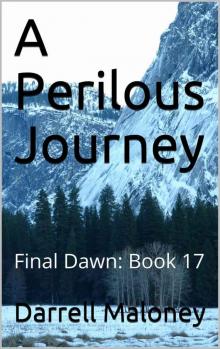 A Perilous Journey
A Perilous Journey The Yellowstone Event: Book 6: The Aftermath
The Yellowstone Event: Book 6: The Aftermath Eden Bound
Eden Bound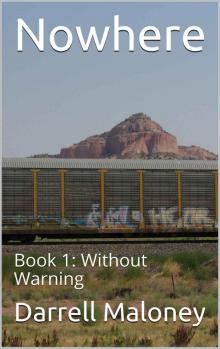 Without Warning
Without Warning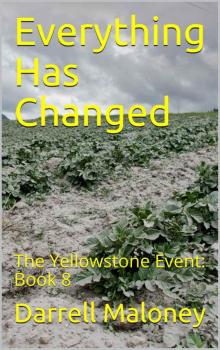 Everything Has Changed
Everything Has Changed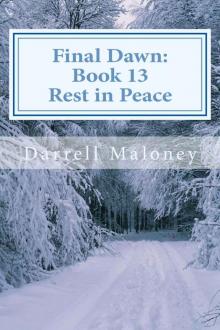 Rest in Peace
Rest in Peace This Changes Everything
This Changes Everything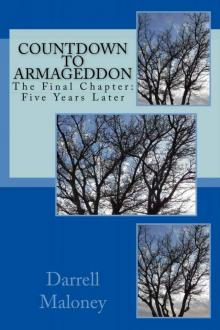 The Final Chapter
The Final Chapter It Can't Be Her
It Can't Be Her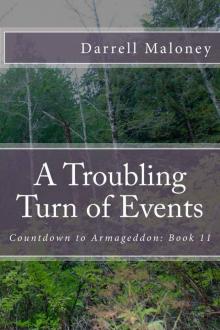 A Troubling Turn of Events
A Troubling Turn of Events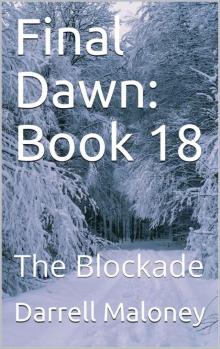 The Blockade
The Blockade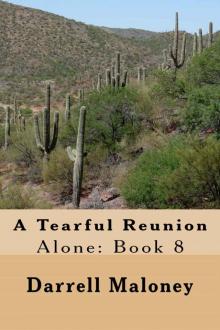 A Tearful Reunion
A Tearful Reunion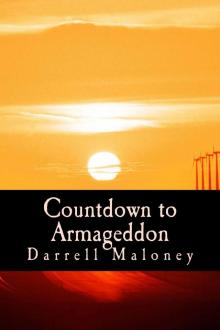 Countdown to Armageddon
Countdown to Armageddon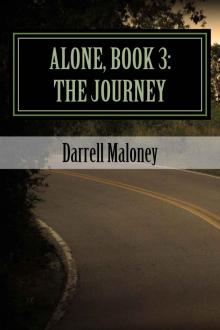 Alone, Book 3: The Journey
Alone, Book 3: The Journey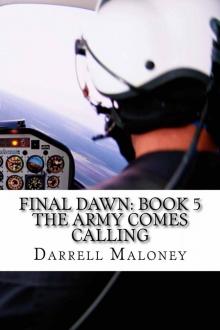 The Army Comes Calling
The Army Comes Calling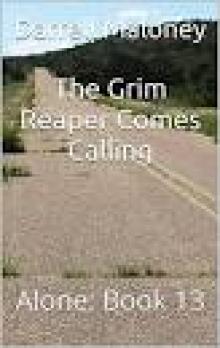 The Grim Reaper Comes Calling
The Grim Reaper Comes Calling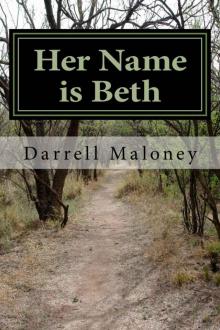 Her Name is Beth: Alone: Book 5
Her Name is Beth: Alone: Book 5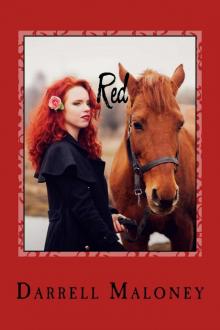 Red: The Adventure Begins
Red: The Adventure Begins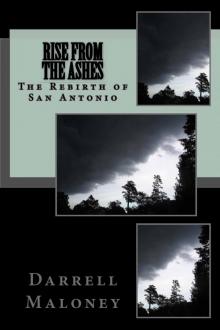 Rise From The Ashes: The Rebirth of San Antonio (Countdown to Armageddon Book 3)
Rise From The Ashes: The Rebirth of San Antonio (Countdown to Armageddon Book 3)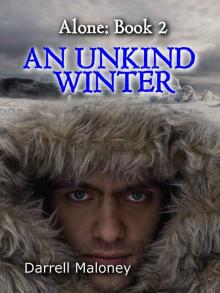 An Unkind Winter (Alone Book 2)
An Unkind Winter (Alone Book 2)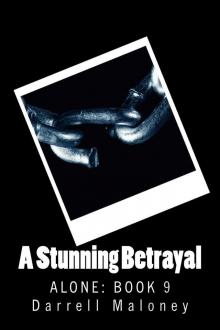 A Stunning Betrayal: Alone: Book 9
A Stunning Betrayal: Alone: Book 9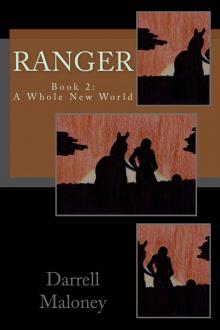 A Whole New World: Ranger: Book 2
A Whole New World: Ranger: Book 2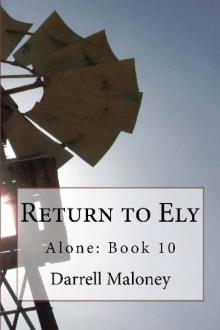 Return To Ely
Return To Ely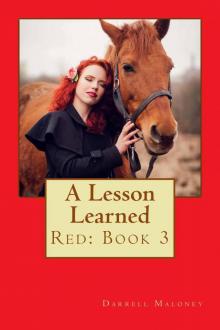 A Lesson Learned: Red: Book 3
A Lesson Learned: Red: Book 3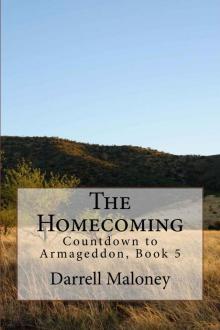 The Homecoming: Countdown to Armageddon: Book 5
The Homecoming: Countdown to Armageddon: Book 5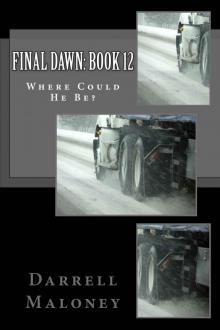 Final Dawn: Book 12: Where Could He Be?
Final Dawn: Book 12: Where Could He Be?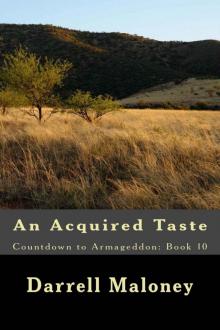 An Acquired Taste
An Acquired Taste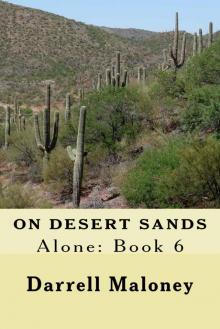 On Desert Sands: Alone: Book 6
On Desert Sands: Alone: Book 6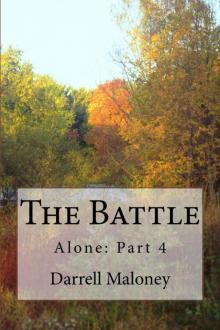 The Battle: Alone: Book 4
The Battle: Alone: Book 4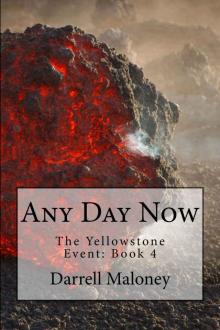 Any Day Now
Any Day Now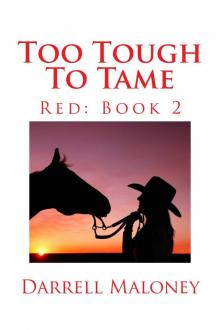 Too Tough To Tame: Red: Book 2
Too Tough To Tame: Red: Book 2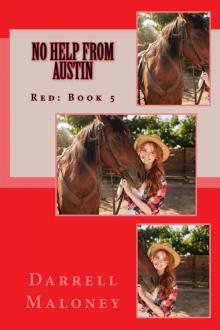 No Help From Austin: Red: Book 5
No Help From Austin: Red: Book 5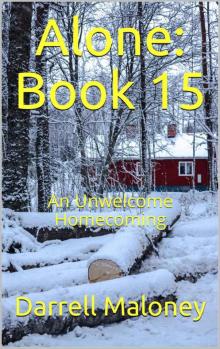 An Unwelcome Homecoming
An Unwelcome Homecoming A New Start: Final Dawn: Book 9 (Volume 9)
A New Start: Final Dawn: Book 9 (Volume 9)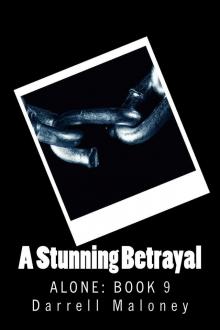 A Stunning Betrayal
A Stunning Betrayal An Undeclared War (Countdown to Armageddon Book 4)
An Undeclared War (Countdown to Armageddon Book 4)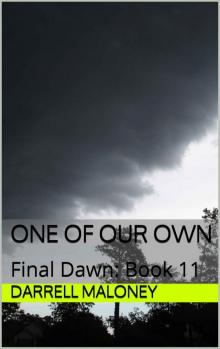 One of Our Own: Final Dawn: Book 11
One of Our Own: Final Dawn: Book 11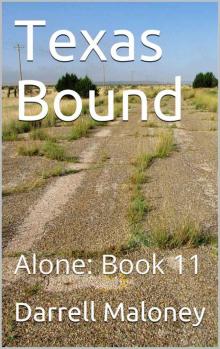 Texas Bound: Alone: Book 11
Texas Bound: Alone: Book 11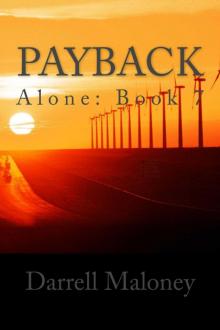 Payback: Alone: Book 7
Payback: Alone: Book 7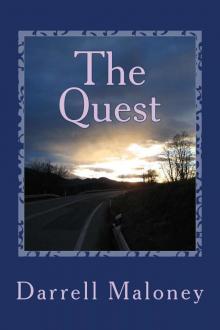 The Quest: Countdown to Armageddon: Book 6
The Quest: Countdown to Armageddon: Book 6 The Siege
The Siege The Yellowstone Event: Book 1: Fire in the Sky
The Yellowstone Event: Book 1: Fire in the Sky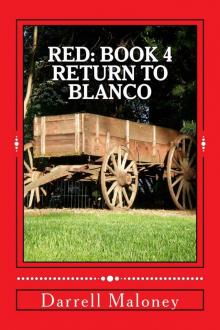 Return to Blanco (Red Book 4)
Return to Blanco (Red Book 4)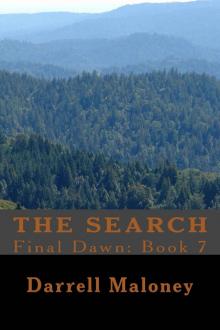 The Search
The Search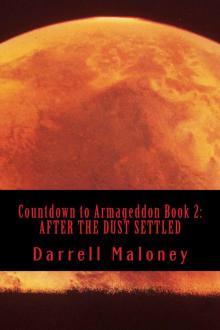 AFTER THE DUST SETTLED (Countdown to Armageddon Book 2)
AFTER THE DUST SETTLED (Countdown to Armageddon Book 2)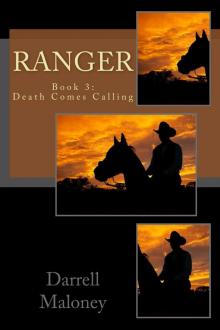 Death Comes Calling (Ranger Book 3)
Death Comes Calling (Ranger Book 3)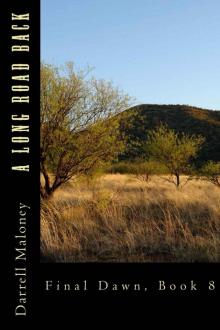 A Long Road Back: Final Dawn: Book 8
A Long Road Back: Final Dawn: Book 8